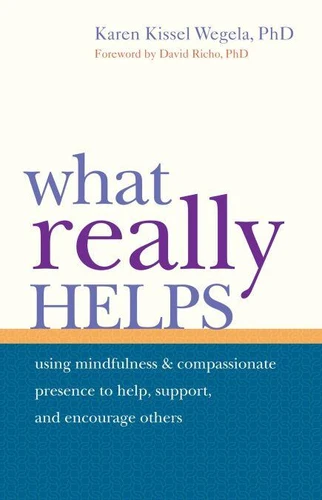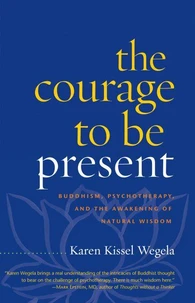What Really Helps. Using Mindfulness and Compassionate Presence to Help, Support, and Encourage Others
Par : ,Formats :
Disponible dans votre compte client Decitre ou Furet du Nord dès validation de votre commande. Le format ePub protégé est :
- Compatible avec une lecture sur My Vivlio (smartphone, tablette, ordinateur)
- Compatible avec une lecture sur liseuses Vivlio
- Pour les liseuses autres que Vivlio, vous devez utiliser le logiciel Adobe Digital Edition. Non compatible avec la lecture sur les liseuses Kindle, Remarkable et Sony
- Non compatible avec un achat hors France métropolitaine
 , qui est-ce ?
, qui est-ce ?Notre partenaire de plateforme de lecture numérique où vous retrouverez l'ensemble de vos ebooks gratuitement
Pour en savoir plus sur nos ebooks, consultez notre aide en ligne ici
- Nombre de pages256
- FormatePub
- ISBN978-0-8348-2734-9
- EAN9780834827349
- Date de parution28/12/2010
- Protection num.Adobe DRM
- Taille440 Ko
- Infos supplémentairesepub
- ÉditeurShambhala
Résumé
Most of us, at one time or another, would like to help a friend, family member, or acquaintance through a challenging time. But do we really know how to give meaningful support and guidance? And why do our best efforts at helping others often come up short? Here is a practical guide that will be of special interest to helping professionals-and anyone who wants to make a positive difference in the lives of people they care about.
To be truly helpful to others, Karen Wegela explains, we must begin by focusing on ourselves. We must develop greater awareness, steadiness of mind, fearlessness, and self-compassion. Only then we can extend these qualities to the people we'd like to help. Drawing on her experiences as a psychotherapist and on her longtime study of Buddhist meditation, Wegela emphasizes the benefits of mindfulness, or learning to become fully present in our moment-to-moment experience.
Through mindfulness we develop a fearless, compassionate presence in our daily lives-and we become better listeners, take wiser actions, and give more valuable, effective guidance to the people we'd like to help.
To be truly helpful to others, Karen Wegela explains, we must begin by focusing on ourselves. We must develop greater awareness, steadiness of mind, fearlessness, and self-compassion. Only then we can extend these qualities to the people we'd like to help. Drawing on her experiences as a psychotherapist and on her longtime study of Buddhist meditation, Wegela emphasizes the benefits of mindfulness, or learning to become fully present in our moment-to-moment experience.
Through mindfulness we develop a fearless, compassionate presence in our daily lives-and we become better listeners, take wiser actions, and give more valuable, effective guidance to the people we'd like to help.
Most of us, at one time or another, would like to help a friend, family member, or acquaintance through a challenging time. But do we really know how to give meaningful support and guidance? And why do our best efforts at helping others often come up short? Here is a practical guide that will be of special interest to helping professionals-and anyone who wants to make a positive difference in the lives of people they care about.
To be truly helpful to others, Karen Wegela explains, we must begin by focusing on ourselves. We must develop greater awareness, steadiness of mind, fearlessness, and self-compassion. Only then we can extend these qualities to the people we'd like to help. Drawing on her experiences as a psychotherapist and on her longtime study of Buddhist meditation, Wegela emphasizes the benefits of mindfulness, or learning to become fully present in our moment-to-moment experience.
Through mindfulness we develop a fearless, compassionate presence in our daily lives-and we become better listeners, take wiser actions, and give more valuable, effective guidance to the people we'd like to help.
To be truly helpful to others, Karen Wegela explains, we must begin by focusing on ourselves. We must develop greater awareness, steadiness of mind, fearlessness, and self-compassion. Only then we can extend these qualities to the people we'd like to help. Drawing on her experiences as a psychotherapist and on her longtime study of Buddhist meditation, Wegela emphasizes the benefits of mindfulness, or learning to become fully present in our moment-to-moment experience.
Through mindfulness we develop a fearless, compassionate presence in our daily lives-and we become better listeners, take wiser actions, and give more valuable, effective guidance to the people we'd like to help.




